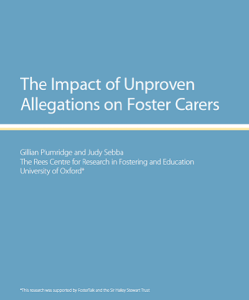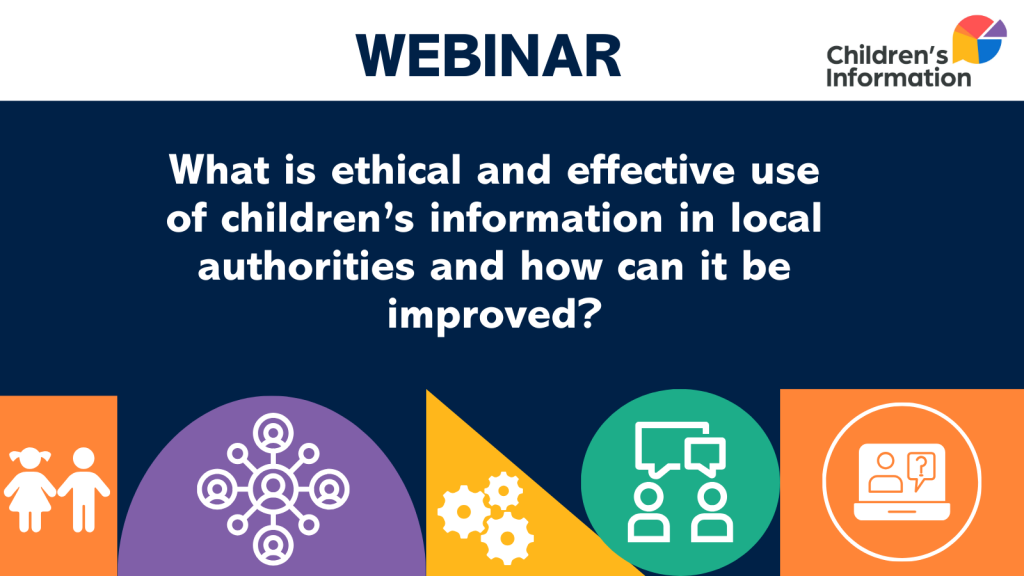The Project
This research study aimed to explore the impact of unproven allegations on carers in order to improve the way that allegations are dealt with by fostering services, local authorities and the police.
Phase 1
We studied 190 records of unproven cases from 2013 and 2014 to understand the characteristics of children and carers involved in allegations, their placements, experience, training and support (190 responses from fostering providers of which 92 came from ten local authorities and 98 from nine independent fostering providers).
Phase 2
We carried out in depth interviews to explore the impacts of allegations and the experiences of carers (16 foster carers from eight local authorities, 14 foster carers from eight independent foster providers along with 23 supervising social workers and 13 fostering managers involved in the same cases).
Wider Team
Gillian Plumridge

Key Findings
Published: July 2016
Key Messages The Impact of Unproven Allegations on Foster Carers July 2016
Characteristics of carers and children
The carers in the study were on average slightly younger and less experienced than those in the overall population of foster carers.
Independent and local authority fostering providers
The only differences between fostering for local authorities and fostering for independent services were continuity of payment by local authorities and the wider support to those fostering for the independent services.
Outcomes of allegations
84% of carers were reported to have continued fostering after the allegation was made.
Support following allegations
55% of foster carers were offered support by their fostering provideron the day the carer learnt about the allegation. 40% of responses stated that carers were not offered independentsupport at any time.
Training
Only 23% of carers were reported to have attended any training that was specifically about allegations and only three of these carers resigned following the allegations.
Overall impact on carers
The main impact on carers and their families of allegations closed as unproven was emotional but also financial. Most carers interviewed were upset by the allegation itself but equally by the lack of information about the allegation, the investigation process and lack of support they were offered.











